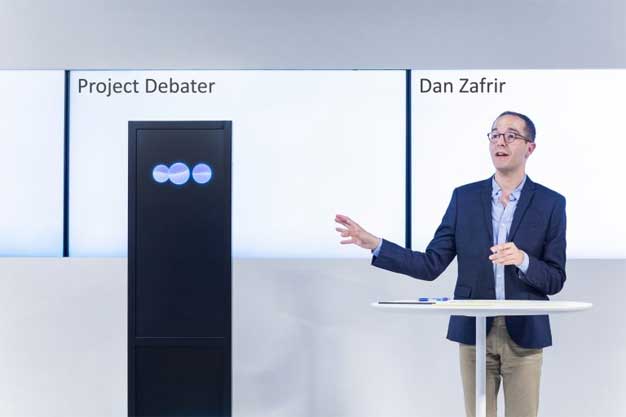IBM Project Debater AI Throws Down With Human Champ And Wins
IBM took its most recent AI system, dubbed Project Debater, and entered it into a competition against human debating champions. The event was held at the IBM Watson West site in San Francisco, California. Project Debater started by preparing arguments for and against the following statement: “We should subsidize space exploration.”

The IBM AI and its human opponent, Noa Ovadia, each delivered a four-minute opening statement, four-minute rebuttal
Project Debater listened to Ovadia’s speech and then issued its rebuttal. That rebuttal included a counter that technological and economic benefits from space exploration outweigh
IBM says that the AI system in this case engaged with a human
IBM says that for the initial demonstration it selected from a curated list of topics to ensure a meaningful debate, however, Project Debater was never trained on the topics. The goal with this system is to develop a broad AI that learns across different disciplines and augment human intelligence. Project Debater can absorb massive and diverse sets of information and perspectives to help build persuasive arguments and make well-informed decisions.
IBM says that the AI features three “first” technologies including data-driven speech writing and delivery; listening comprehension and the ability to find key claims inside long spoken language arguments; and it has the modeling in human dilemmas and a knowledge graph to enable it to create principled arguments. IBM says that work is far from complete but that the AI has the potential to assist with complex human decisions. It could one day even act as a sounding board with human bias.

